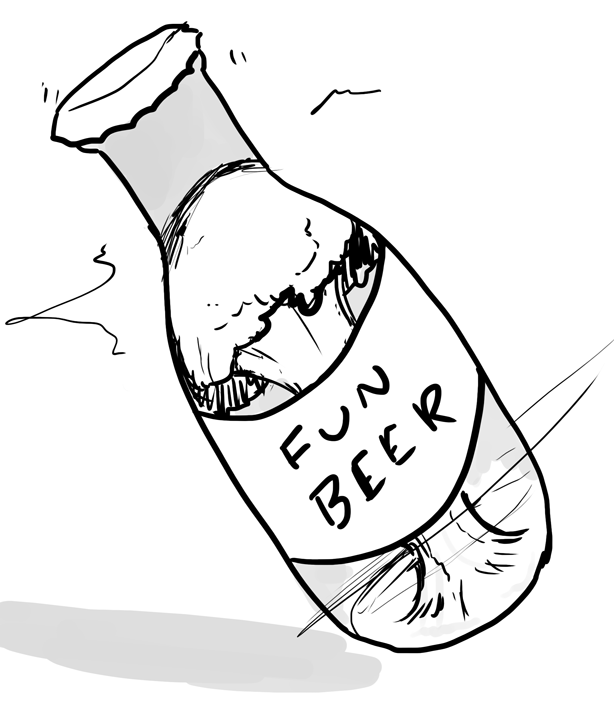Print Edition: January 29, 2014

An atomic bomb has been dropped in Abbotsford and nearly everything has been obliterated. People are running around in search of food or beverages in an attempt to survive. Luckily, one product remains: beer.
That’s the idea behind the U.S. government’s study “The Effect of Nuclear Explosions on Commercially Packaged Beverages,” (also known as Operation Teapot) which tests the effect of radiation on beer. The U.S. definitely had some of its priorities straight when it began this study in 1955.
Bottles and cans were placed at various distances from Ground Zero, and when the bomb was activated, many survived. Once the containers were checked for levels of radiation, the scientists found they were radioactive, but only mildly and in such a way that the radiation would not affect the drink inside the container.
Science historian Alex Wellerstein tells NPR that the drinks were within the permissible emergency use levels, indicating they’d be okay in a pinch.
“[Drinking the beverages] won’t hurt you in the short term,” he said.
However, there are skeptics. Reyco Henning, an assistant professor of physics at the University of North Carolina discussed the effect of neutrons on the bottles and the beer inside in an interview with Life’s Little Mysteries.
“A nuclear explosion puts out a tremendous amount of neutrons and neutrons can transmute elements and make them radioactive,” he said. “Generally heavier elements are more susceptible to this than light elements.”
Metal cans and silicate bottles have a chance of picking up coppers, as well as other contaminants, during brewing, which gives them a higher chance of being able to hold on to radiation (compared to purified water in a plastic bottle). Henning adds that the true challenge would be trying to find pure water because of radiation-drawing substance contamination that is commonly found in water sources.
“I would go for the purest water you can make stored in a plastic bottle,” he noted. “Beer I would probably not drink under any circumstance.”
Radioactive or not, one question remains: how does post atomic bomb beer taste?
Most of the drinks were said to be “of commercial quality” according to the official report from 1955.
However the beers that were affected the most by the blast were said to taste “definitely off,” enough that the beer would never have been made available for public sale.
Considering how difficult uncontaminated water would be to find in the event of an atomic blast, Wellerstein concludes that beer could keep you hydrated and alive.
“For me, the takeaway here is that the next time you find yourself stocking up on beer, remember, it’s not just for the long weekend,” Wellerstein remarks, “it might be for the end of days.”


